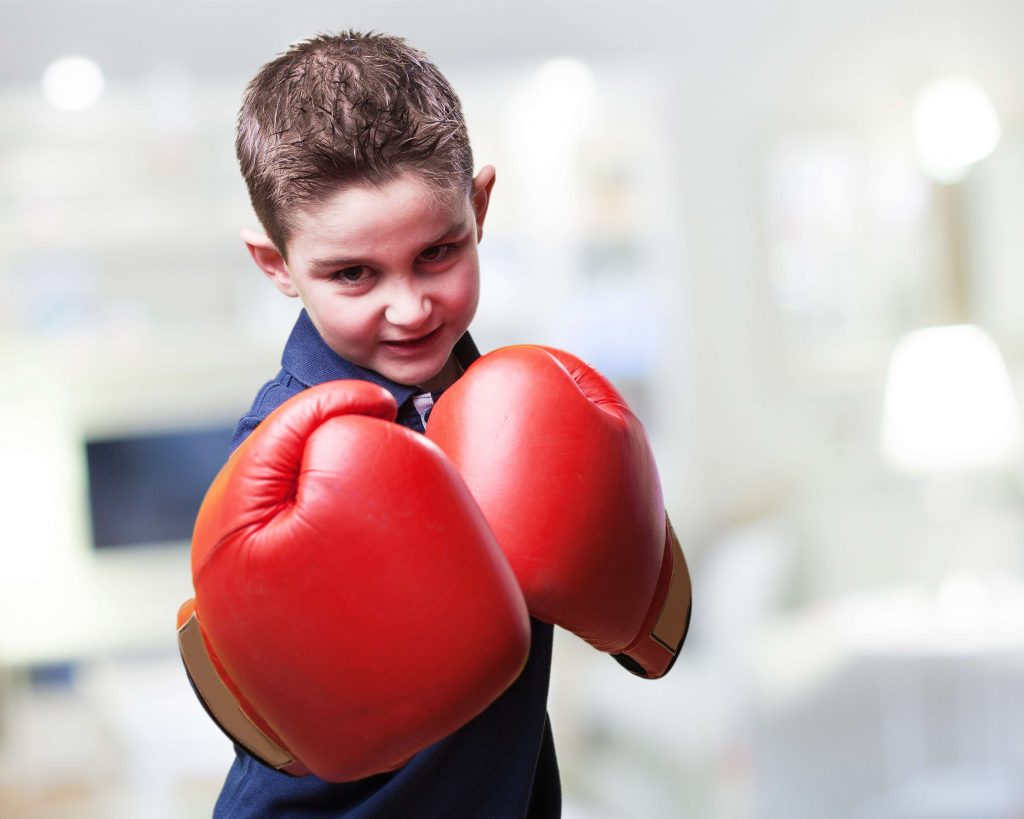Effects of media violence on children’s brain and behaviors have worsen nowadays since children today are immersed in the Internet and can use Internet-connected devices wherever or whenever they want. Due to the growth of the Internet and billions of content being updated online every day, your child is very likely to get access to violent content – or called media violence.
Over the past six decades, hundreds of studies have been done on this topic. Experimental studies have shown that exposure to violence in media causes children or teenagers to become more aggressive right after. Many studies show that exposure to violent content as a child is more likely to engage in aggressive and violent behavior in adulthood. That means its effects are long-lasting.
The article below will help parents understand what are the effects of media violence on children’s brains and behavior.
What is violent content?
According to WHO, violence is “the intentional use of physical force or power, threatened or actual, against oneself, another person, or against a group or community, that either result in or has a high likelihood of resulting in injury, death, psychological harm, maldevelopment, or deprivation.”
Violence is a common topic in the media (e.g. TV shows, movies, videos, video games, music, books and comics) and is increasingly appearing on the Internet. With the increasing usage of Internet-connected devices for learning, entertaining, more and more children have exposure to media violence.is it simply because your child is changing appetite?


Effects of media violence on your child’s brain – First, know how the brain adapts to the outside environment
According to Charles Zeanah, Jr. from Tulane University, brain development begins at the fourth week before birth and continues into mid-adulthood, so brain structure development (shaping how they become who they are) depending on biological genetics (genes) and personal experience.
You need to understand that the basis of brain development during this stage is of utmost importance as the basic information circuits in the brain are linked first, with more advanced circuits built on these more basic circuits, leading to the formation of skills. Experience is incorporated into the structure of the brain through experience-expectant development and experience-dependent development.
Try and you might love this:
Experience-expectant development refers to the expected experiences, such as when complex auditory information facilitates the development of language processing.
Experience-dependent development is unique and individual to each person as the positive formation of new synaptic connections (throughout life) is based on your child with the environment (eg: memorizing facts, collecting vocabulary).
Thus, adverse experiences will have a negative effect on brain development and threats, abuse and violence leading to over-activation of the fear vasculature and stress responses, This, in turn, affects the normal brain development of your child.
Brain endurance decreases with time, there are critical stages in brain development affected by both good and bad experiences and negative brain effects during these sensitive periods. Making recovery more difficult can lead to some serious consequences that cannot be changed.


What are the effects of media violence on children’s brains?
The brain adapts to its surroundings and develops by becoming more interconnected and specialized (such as the part of the brain that plays a role in decision making). A 23-year study conducted by the National Institutes of Health (NIH) explores brain development, including the mechanisms and effects of that development. The study combines brain imaging, genetics, and teen-focused psycho / behavioral assessment to examine the effects of violence on the child’s brain, which could be acute trauma. lump-sum, chronic (eg relapse) and trauma complex.
The relationship between violence and brain development depends on a variety of factors, and there is evidence that different effects and levels of violence cause different types of brain injuries in fish. different people, environment and development stage. As the brain matures by becoming more interconnected, the brain’s maturation has both the good and the bad. For example, 75% of mental illnesses occur in their 20s.


However, the brain of teenagers is different from the brain of a child or an adult. Since the brain is highly adaptive during adolescence and can even change until your child reaches 25–30 years of age, this can be considered a “sensitive” period if exposed to violent content, causing the brain to have more negative changes. This also strongly applies to pornographic content.
What are the effects of media violence on children’s behaviors?
In addition to the major effects on the brain, the results report and a follow-up report in 1982 by the National Institute of Mental Health identified the main harmful effects of watching violent content:
- Children can become less sympathetic to the pain and suffering of others.
- Children may be more frightened of the world around them.
- Children can easily behave in ways that are aggressive or harmful to others.


Research by psychologists L. Rowell Huesmann, Leonard Eron and others dating back to the 1980s has found that children who are regularly exposed to media violence while in elementary school tend to exhibit higher levels of aggressive behavior as they become teenagers. Children who regularly watch violent content at the age of 8 are more likely to be arrested and prosecuted for their crimes when they are adults.
Another study found that exposure to violent content can make your child less sensitive to real-world violence and in some cases find violent content more and more interesting. than.
What can I do to protect my child from violent content?
Violent content is getting worse and worse because it seeps deep into the Internet, and your child, with high frequencies of internet usage for study and entertainment, will most likely be exposed to these types of violence.
To better protect your kids, especially when you don’t have time with them, you need to proactively protect them by using content filtering tools with AI to hide and block images/videos from reaching your child, minimizing negative factors of violence in media that affect the development of the brain and later behavior of the child.
Reference:
- The Neurocognitive and Psychosocial Impacts of Violence and Trauma
- Violence in the Media: Psychologists Study Potential Harmful Effects
- Huesmann, L. R., & Eron, L. D. (1986). Television and the aggressive child: A cross-national comparison. Hillsdale, NJ: Erlbaum.
Maybe you missed this awesome articles:















